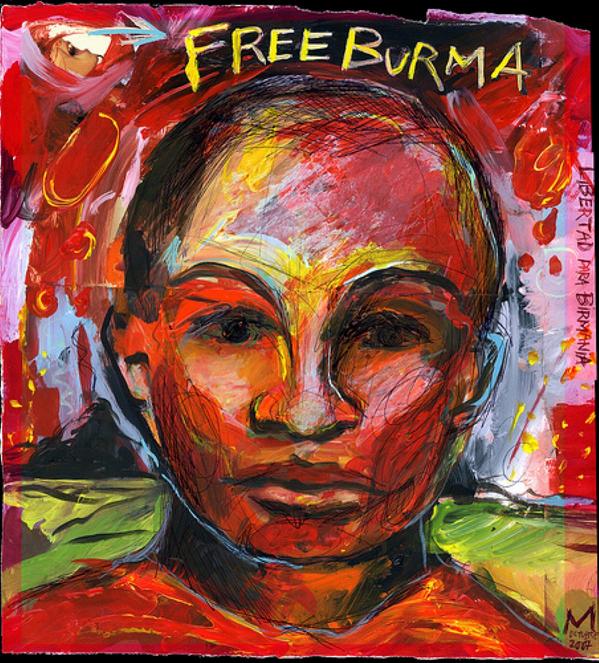by Cheery Zahau
The Women’s International Perspective, June 2, 2008
 In the devastating aftermath of Cyclone Nargis, international scrutiny highlights the military junta that rules Burma, a Southeast Asian country that shares borders with China, India, Bangladesh, Thailand and Laos. Adding greatly to the number of victims claimed by the storm, the Burmese government prevented aid from entering the country until pressured by the international community. Burma’s notorious military regime seems to enjoy watching its people suffer, turning deaf ears to victims in need, denying entrance of international aid groups and failing to properly prepare the region, despite prior warning from regional weather centers.
In the devastating aftermath of Cyclone Nargis, international scrutiny highlights the military junta that rules Burma, a Southeast Asian country that shares borders with China, India, Bangladesh, Thailand and Laos. Adding greatly to the number of victims claimed by the storm, the Burmese government prevented aid from entering the country until pressured by the international community. Burma’s notorious military regime seems to enjoy watching its people suffer, turning deaf ears to victims in need, denying entrance of international aid groups and failing to properly prepare the region, despite prior warning from regional weather centers.
And though there has been recent talk of the junta’s deliberate failure to protect its people, ethnic Burmese groups have experienced constant severe human rights violations in their daily lives for years.
With a population of over 50 million people, Burma is comprised of eight major ethnic nationalities: Burman, Shan, Karen, Karenni, Mon, Chin, Kachin and Arakan. Burma’s ethnic groups demand equality, autonomy and self-determination, but are systematically denied their rights by the junta. Instead, they are met with human rights violations: forced labor, forced relocation, religious persecution, arbitrary arrest and detention, destruction of thousands of ethnic villages, the driving out of hundreds of thousands of ethnic civilians to neighboring countries, and the forced internal displacement of an estimated one million people.
Worse yet is that Burmese military soldiers are raping the ethnic women and girls with impunity.
Poster: Free Burma

